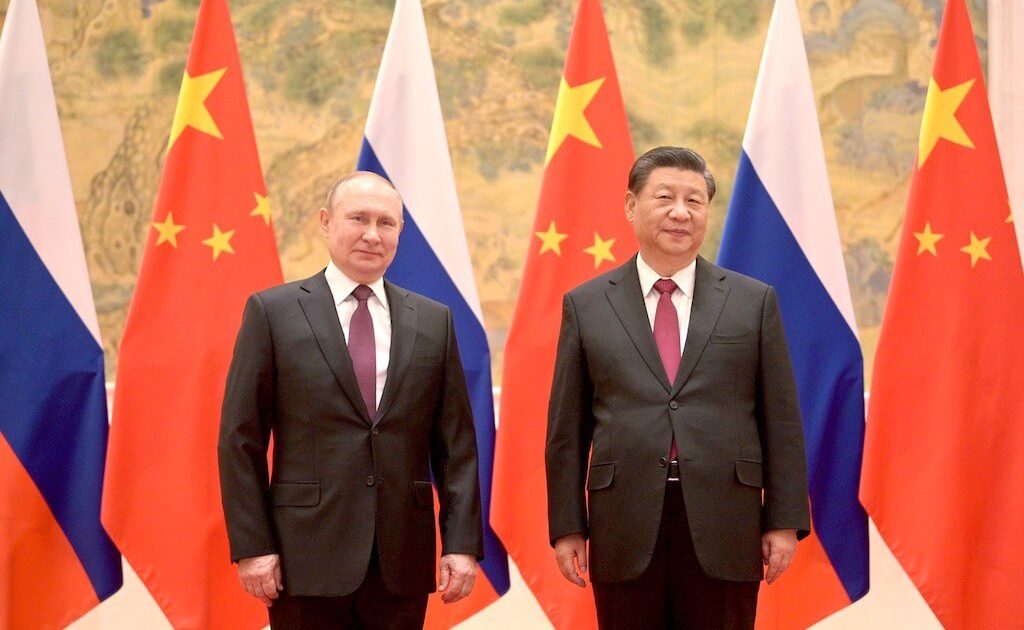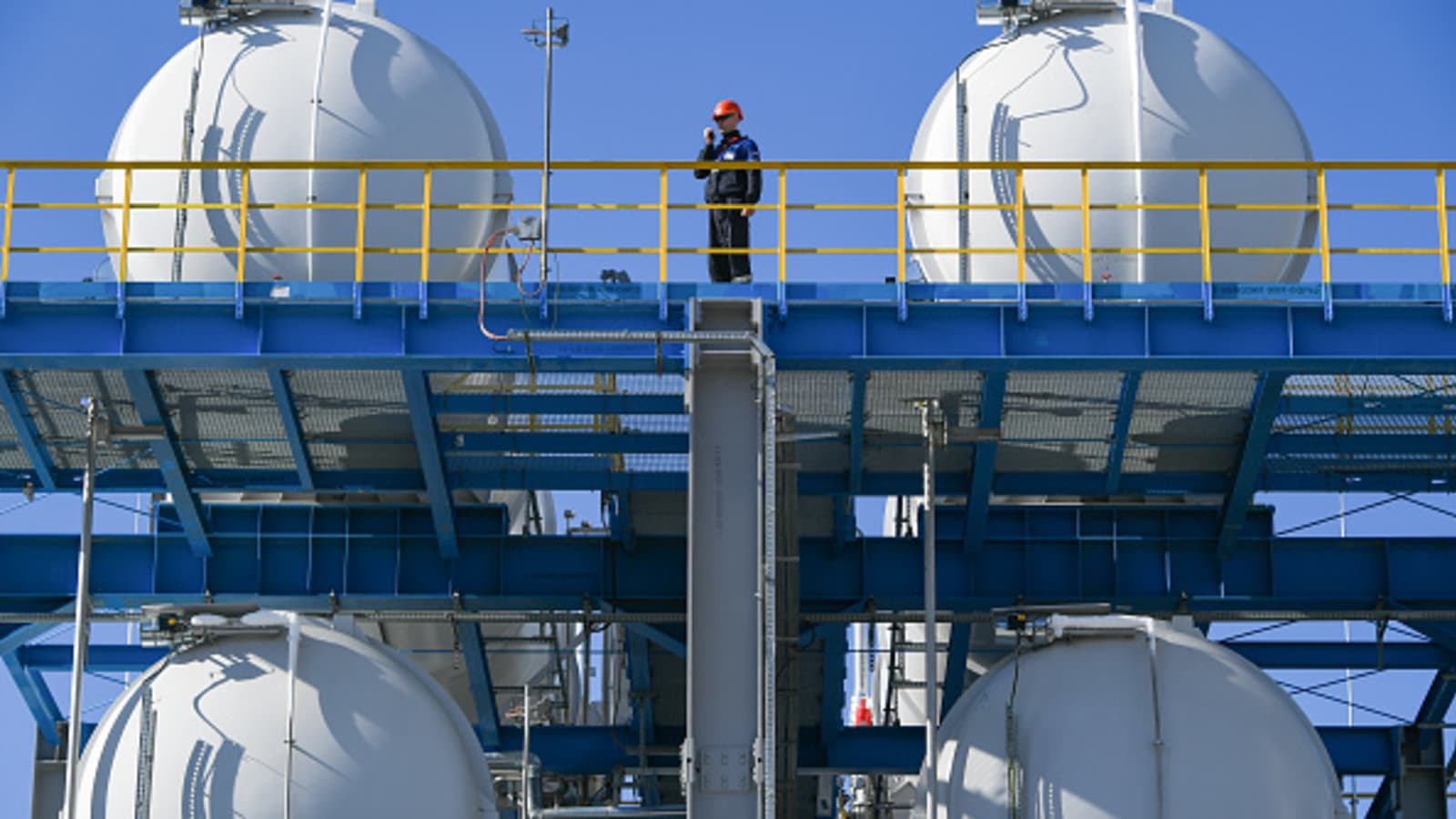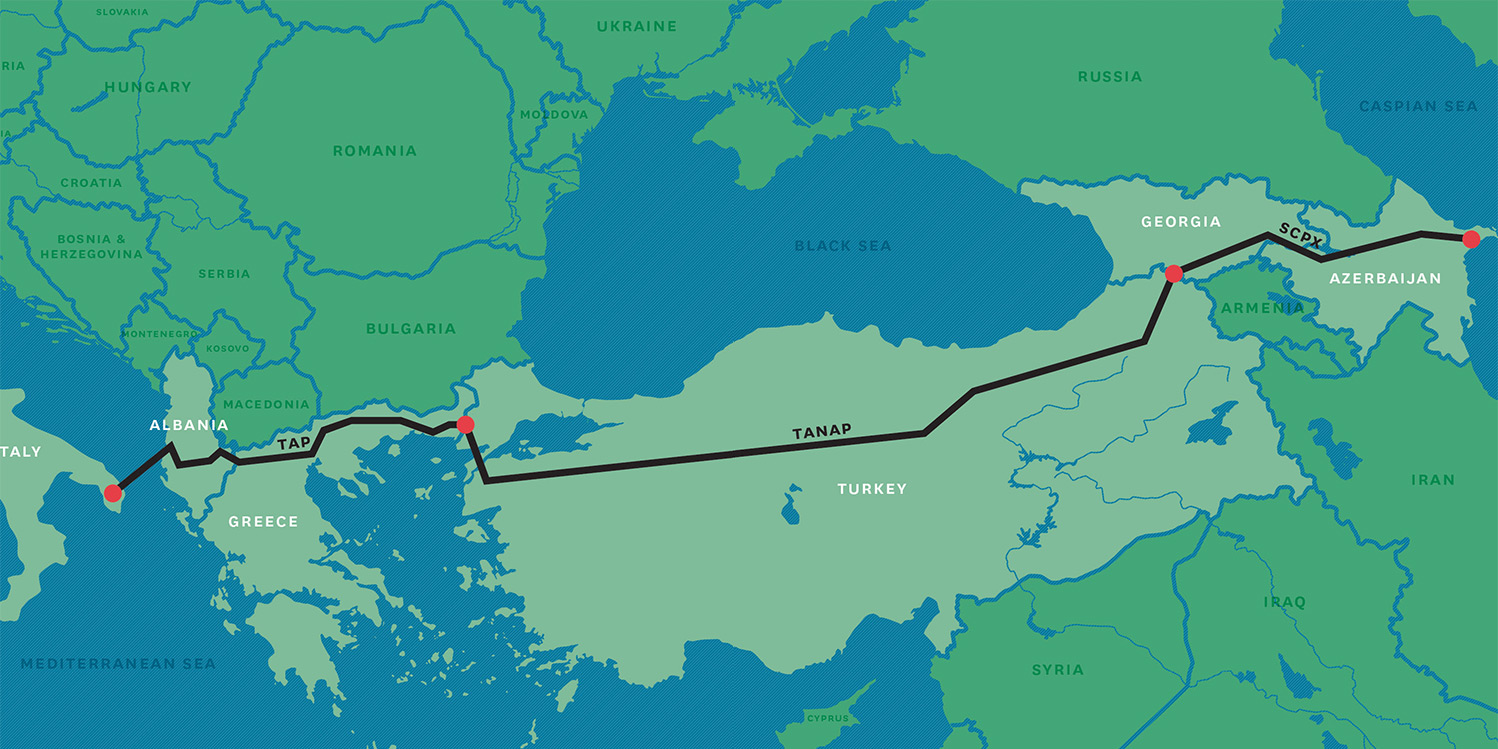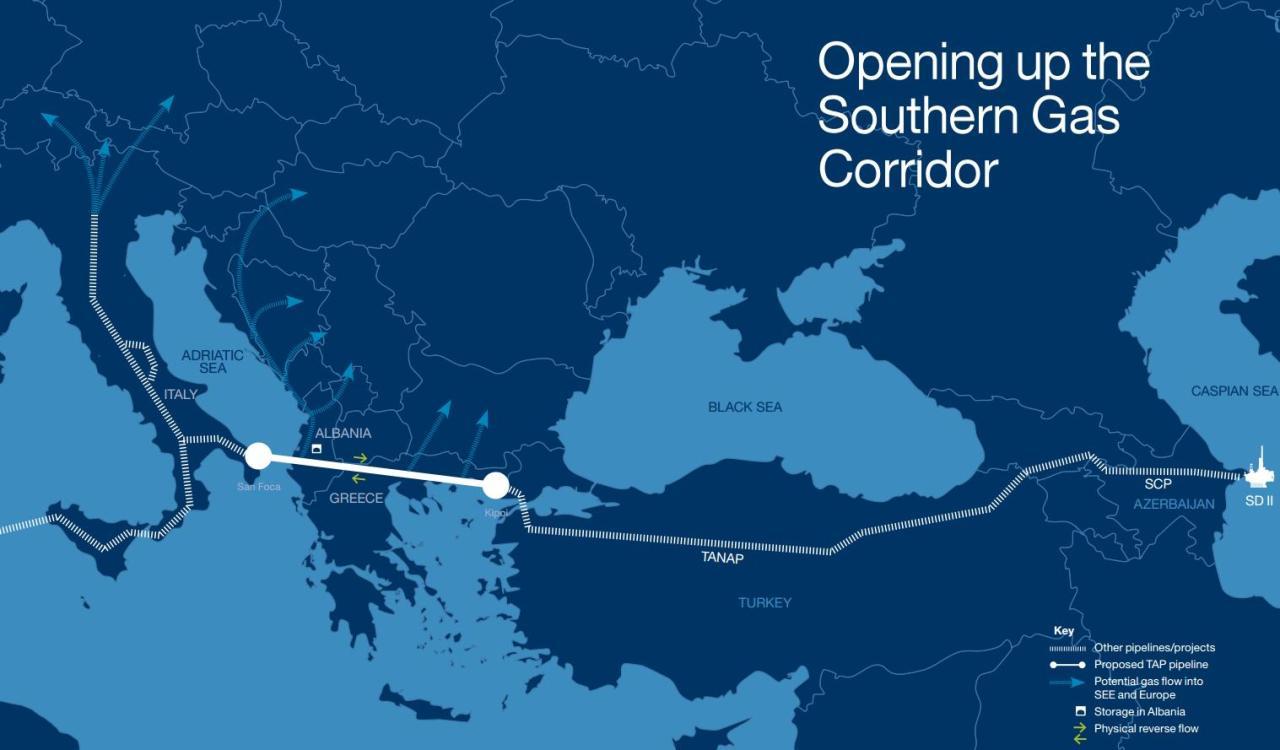
Russian President Vladimir Putin (L) and Chinese President Xi Jinping (R) meet in Beijing, China on February 4, 2022. Photo by Kremlin Press Office
Amid escalating tensions between Moscow and the West over Ukraine, Russian President Vladimir Putin paid an official visit to China to finalize the negotiations over a new $80 billion natural gas agreement. On February 4, Gazprom signed an agreement with China National Petroleum Corporation (CNPC) to supply Russian gas to China via the Far Eastern route for the next 25 years, which will boost Russian gas volumes to China by an extra 10 billion cubic meters (bcm) a year.
Unlike the previous Russia-China gas agreement on the Power of Siberia pipeline, which is being built for the last five years, the new agreement does not entail the construction of an additional pipeline network. Although the Western media dubbed this agreement unexpected, the negotiations over the agreement lasted six years and resulted in the signing of memoranda of understanding in 2015 and 2017, respectively. Russia has long aimed to capitalize on its vast hydrocarbon resources to cater to China’s increasing liquefied natural gas (LNG) demand. The agreement was signed at a time of an uneasy geopolitical situation between the U.S. and Russia over Ukraine, which prepares for the full-scale war with Russia. In this vein, it is significant that the new gas agreement was settled in euros in an effort by both Moscow and Beijing to diversify away from trade in U.S. dollars.






